Dermatology Affiliates Clears Up Nail Fungus: Myths vs. Facts
Unveiling the Truth: What You Need to Know About Nail Fungus
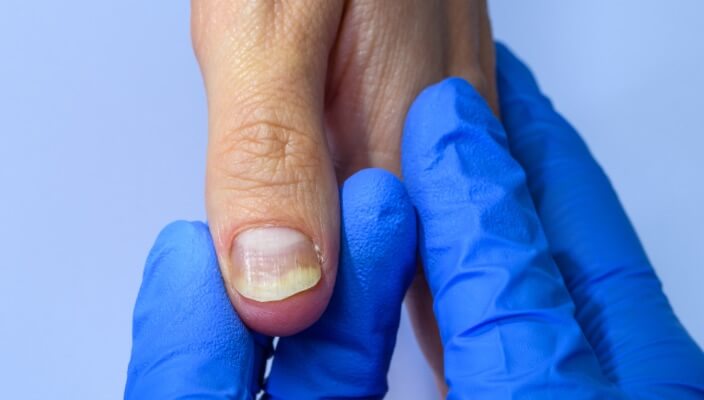 A fungal nail infection, or onychomycosis, occurs when fungi overgrow in, under, or on the nail, causing nails to become discolored, thick and/or brittle. Misinformation about these infections can be as resilient and frustrating as the condition itself. As experts in nail health, we debunk the myths below to help you access accurate information about your nails.
A fungal nail infection, or onychomycosis, occurs when fungi overgrow in, under, or on the nail, causing nails to become discolored, thick and/or brittle. Misinformation about these infections can be as resilient and frustrating as the condition itself. As experts in nail health, we debunk the myths below to help you access accurate information about your nails.
Fungal nail infections are rare.
FALSE. Approximately 10 percent of people are afflicted with fungal nails, and that percentage increases to approximately 50% by age 70 or above.
Nail fungus is harmless.
FALSE. Fungal nail infections are often considered a trivial cosmetic issue. However, this condition can cause significant pain and embarrassment, nail loss and ingrown nails, and increase your risk for secondary fungal infections.
Only people with inadequate hygiene get nail fungus
FALSE. Fungal nails can affect anyone through ill-fitting shoes, nail injury, exposure to damp, humid environments and even chronic medical conditions.
Fungal nail infections are not contagious.
FALSE. They can be transmitted from one person to another through direct skin-to-skin contact and via towels, clothing, socks, shoes, nail clippers and moist surfaces. Fungal nail infections can also spread from one nail to your other nails and skin.
Summer and workout activities increase the risk of nail fungus.
TRUE. Walking barefoot in warm, humid public spaces such as swimming pools, gyms, locker rooms, showers, and saunas elevates the risk of transmission. Excessive sweat inside your socks and shoes can also increase your risk. Wear footwear in public areas and choose absorbent socks and breathable, comfortable shoes.
Certain medical conditions contribute to nail fungus.
TRUE. A weakened immune system, cancer, diabetes, athlete’s foot, psoriasis and poor circulation can increase the risk of infection.
Examples of Nail Fungus
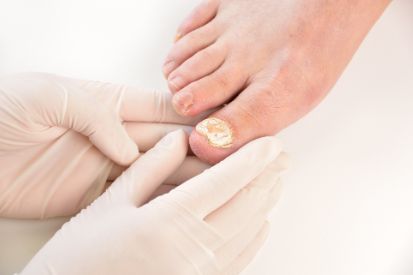
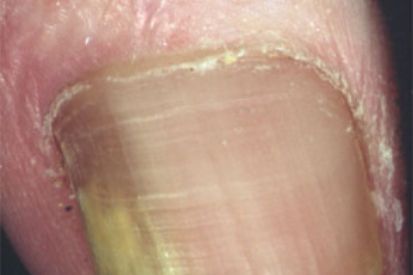
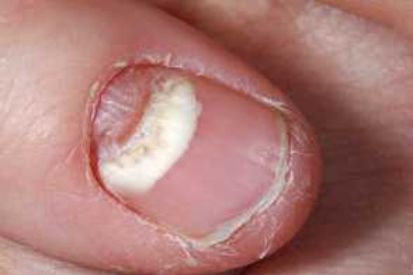
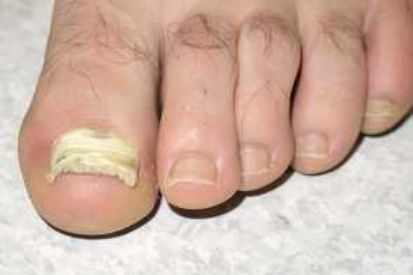
You can get fungal nails from nail polish and nail salons.
TRUE. Nail polish traps moisture, promoting a fungus-friendly environment, and studies have found that fungi can grow in certain nail polishes. A manicure or pedicure may cause minor skin and nail trauma, which, combined with poor sterilization and shared nail polish bottles, makes infection a risk.
Acrylic nails protect against nail fungus.
FALSE. If acrylic nails aren’t applied correctly, are loose, or are worn too long, moisture can get trapped between the nail adhesive and nail bed, leading to fungal overgrowth. One study found that out of 68 female patients reporting a nail concern after removing their artificial nails, 67 were diagnosed with a fungal nail infection.
A nail injury can lead to nail fungus.
TRUE. Trauma can damage the nails and cause cracks or separation from the nail bed, providing entry for the fungi.
Nail fungus is more prevalent in toenails than fingernails.
TRUE. This is likely because of the warm, moist environment of shoes.
Nail fungus can heal on its own.
FALSE. Without treatment, a fungal infection can worsen, cause structural damage to your nail beds, and even spread to the skin and other areas. Only active, sustained treatment will eliminate the infection.
Nail fungus is easy to self-treat.
FALSE. Fungal nail infections can be challenging to treat and often do not go away without prescription antifungal medications. It can get into and around the nail, grow underneath it, and may cause the nail to thicken and break down, making it difficult for the medication to penetrate. Treatment typically lasts up to three months, and it usually takes six to nine months for a nail to grow out.
Find Relief From Stubborn Nail Conditions With Dermatology Affiliates
When visiting our dermatologists for any nail issue, you benefit from accurate diagnosis, access to advanced treatments, customized follow-up, and expert advice on general nail care and prevention.
Treatment options for fungal nail infections include antifungal creams, medicated nail lacquers, oral antifungals, laser therapies and nail debridement. Schedule an appointment with Dermatology Affiliates to start your journey towards clear, healthy nails.
Featured Products for Nail Fungus
Check your local office for current stock!
Check your local office for current stock!
Featured Blogs
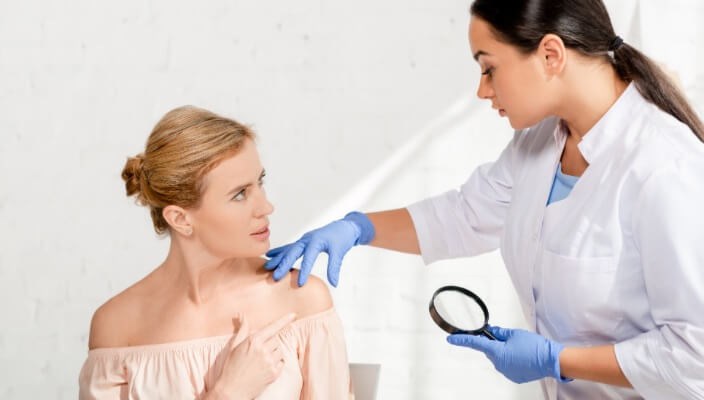
- General Dermatology
- Skin Care
- Chronic Skin Conditions
Skin tags are benign growths of excess skin which form in response to rubbing and irritation. Read more to learn about what we can do about them.
Read More
- General Dermatology
- Skin Care
Discover the types of nail fungus, their symptoms, and how to identify and prevent infections. Seek medical attention if you suspect a nail fungus issue.
Read More
- General Dermatology
- Skin Exams
- Chronic Skin Conditions
Discover the top 5 psoriasis triggers and learn how to avoid them. Reduce flare-ups and improve your skin health with these practical tips.
Read More


